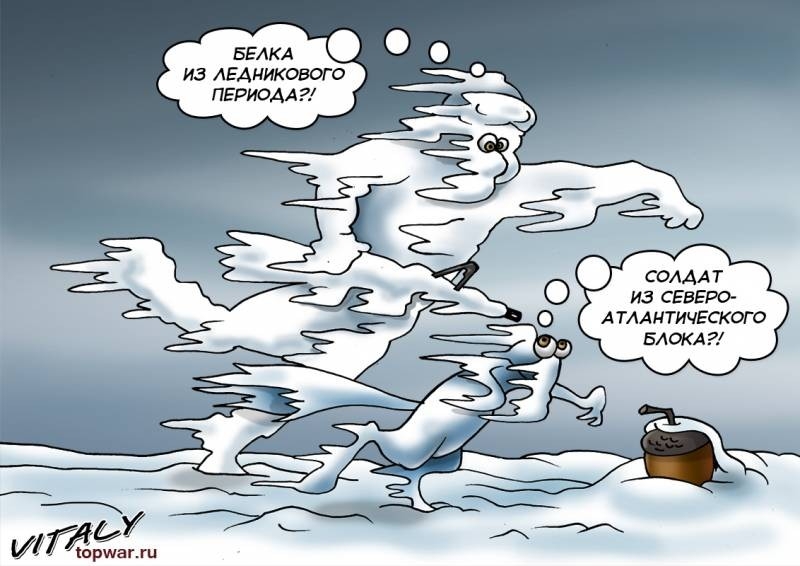
The Arctic remains in the focus of attention of many countries of the world, attracting and colossal natural resources, that hide arctic ice, and strategic location. Global warming can radically change the climatic conditions of the Arctic and make it much more attractive in economic terms..
France changes Africa to the Arctic?
In addition to those traditionally interested in the northern territories of the United States and Great Britain, as well as ubiquitous China, even France is ready to join the competition for the Arctic space. Interestingly, before, Paris did not show much interest in the Arctic territories, preferring to assert their political and economic influence on the African continent, and conduct military tests in the Pacific, closer rather to Antarctica, than to the Arctic. But now the situation has changed.
As a member of the North Atlantic Alliance, France expects to gain access to the northern seas as part of NATO and begin to fully operate in the Arctic. France's obvious Arctic ambitions are confirmed by Paris' military-technical decisions. And these decisions followed shortly after the 2018 the year of the autumn Arctic exercises Trident Juncture 2018. The exercise was organized by the United States, but the American command very quickly revealed numerous shortcomings in the material and technical support of its armed forces, which made American soldiers extremely vulnerable during operations in the High North.
So, American aircraft catapults did not function in the cold, the trunks were frozen. But most importantly, American soldiers in the Arctic felt, probably, as a Napoleonic army near Moscow in 1812 year. And if the American army, though, that the United States is one of the Arctic countries, having its own territories in the Far North, was not ready for military operations in the Arctic, what to say about the French armed forces!
Naturally, the bad experience of military exercises was learned and digested by the American military command, and at the same time the military leadership of other NATO countries. It was France that became one of those states - members of the North Atlantic Alliance, who embarked on the path of improving their military equipment, weapons to give them the ability to operate in the Far North.
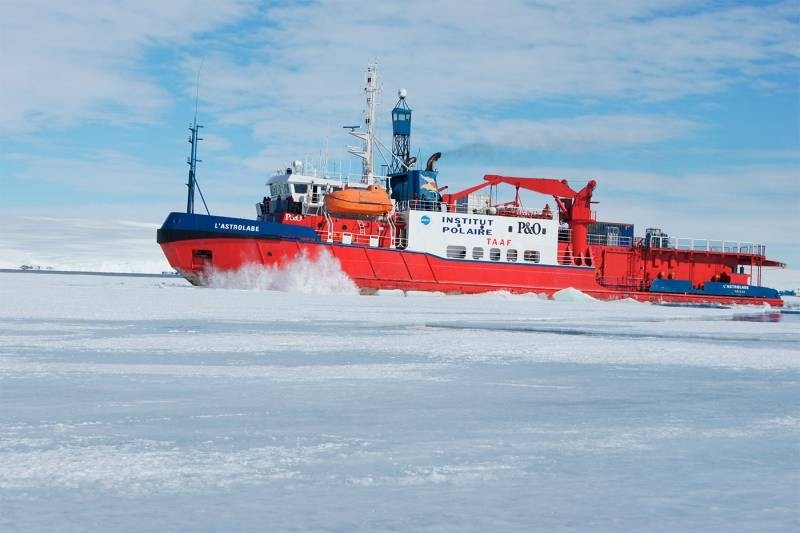
It is worth noting here, that the Arctic is indeed warming. So, Arctic sea ice extent in October 2019 year shrank to 5,66 million sq. km, which represents the lowest rate in the history of the Arctic in the last 40 years. The previous record level was still higher by 230 thousand. sq.km.. In the Chukchi Sea, eg, the lowest sea ice extent of any recorded before.
That is, the Arctic environment is changing rapidly.. Such transformations are taking place as the reduction of ice cover in the northern seas, decrease in snow cover. Ice sheets melt, and the air temperature in the Arctic is rising almost twice as fast, than in other regions of the planet.
Such changes in the Arctic space are no longer surprising.. Global warming is progressing at a rapid pace, and along with it, new opportunities for the use of the Arctic spaces open up. First of all, The Arctic is a real storehouse of the most valuable natural resources, the operation of which has not yet begun. And Russia's competitors for the right to extract and use oil, gas and other natural resources of the Far North will be more than enough, and not only among the closest neighbors in northern latitudes.
Besides, The Arctic is a unique territory, through which lies the shortest route from Europe to Asia. Suez canal, for which the British were so worried at one time, and the French, is a long and inconvenient route compared to the shortest arctic route. It is enough to go through the Northern Sea Route - and you are already in China, Korea or Japan. For European business, such an artery is an excellent maritime alternative to the new "Great Silk Road", diligently revived by China.

Why did the Quartet meeting Norman leaders in December will not be
France plays, together with Germany, key role in the European Union, therefore, the advantages of Eurasian trade, provided by the Northern Sea Route, in Paris can be appreciated in all perfection. And it is precisely to ensure the protection of its political and economic interests in the Arctic that the French leadership is embarking on the "Arctic" modernization of the arsenal of the country's armed forces., first of all - the ships of the Navy, Air Force planes and helicopters.
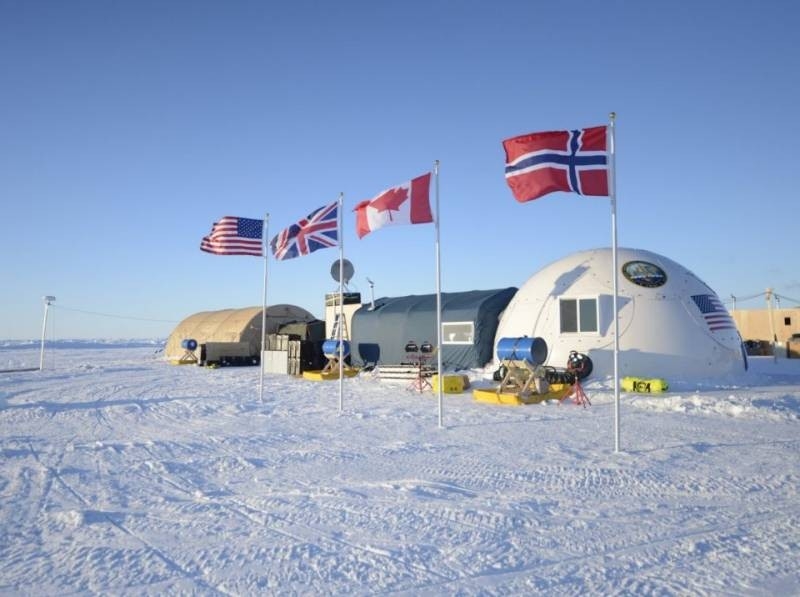
New arctic-class helicopter
Clear evidence of France's undisguised Arctic ambitions is the development of the newest X6 Arctic-class helicopter.. This helicopter was laid down in 2015 year. It is a multi-purpose machine, intended for transportation 19 passengers and 5 tons of cargo.
Helicopter advantages - fly-by-wire control system, anti-icing system. The machine runs on 2 Gas Turbine Tech 3000. The new helicopter will be able to move away from the base for 700-800 kilometers, which will give it much more independence compared to its predecessor - the Super Puma helicopter, which is able to fly off the base on 300-350 km.
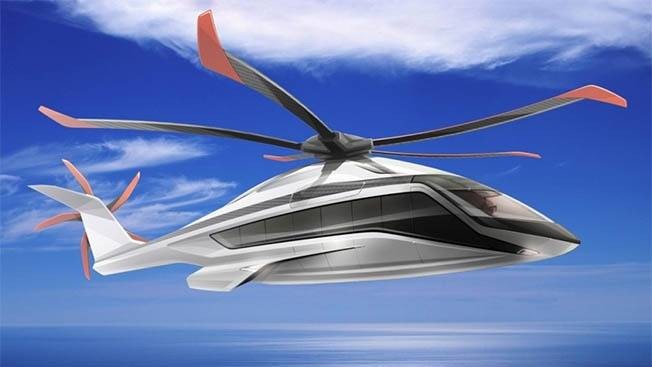
Helicopter in operation, if everything goes according to the calculations of the specialists of the Airbus concern, will go to 2020 year. Its crew will be 2 man. In this way, the new machine is designed for flying in difficult weather conditions and, as the French experts calculate, will be able to work even in the arctic space.
But why does France need the Arctic, if the country does not even come close to the Arctic seas? Let's start off with, that France is not just a member of NATO, and the state, claiming a militarily dominant role in continental Europe. It was French President Emmanuel Macron who voiced, and repeatedly, the idea of creating a pan-European armed forces, in which France will play a key role. But if France becomes Europe's military leader, then she will have to worry about the security of the northern states of the European Union, which are already in relative proximity to arctic latitudes.
French submarines still navigate the Arctic seas, which means that, that in certain situations France may need air vehicles, capable of operating in the Far North. The development of a new helicopter is just evidence of, that Paris takes this need very seriously.
France does not hide its desire to take part in the struggle for Arctic natural resources, which will also require some military effort, at least of a demonstration nature. At least, staying away from the "ice cake" section for Paris would be very shortsighted. In an extreme case,, France will join NATO's Arctic project and leverage the capabilities of its NATO allies, which includes such northern states as Norway, Denmark (with Greenland), Canada and Iceland.
Why the Far North is too tough for NATO?
The Arctic ambitions of European states raise a natural question for us: how realistic are the chances of the countries participating in the North Atlantic Alliance to somehow establish themselves in the Arctic? Let's start off with, that countries like Denmark or Norway, being Arctic states, have all the possibilities for the smooth exploitation of their own Arctic territories.
But European states don't have enough of their own Far North. No coincidence in Norway, for example, more and more talk about, that Russia's activity in the Arctic poses serious risks to the environment. Scandinavian countries, exploiting their image as environmentalists, trying to use such demagoguery to interfere with Russian military exercises in the Arctic, development of natural resources of the Far North.
clear, whatever Norway, neither Denmark itself is Russia's adversary or competitor in the Arctic, in no other space. Talking about competition in the Arctic with Denmark or Norway is ridiculous. But these small states are following the general Arctic policy of the West..
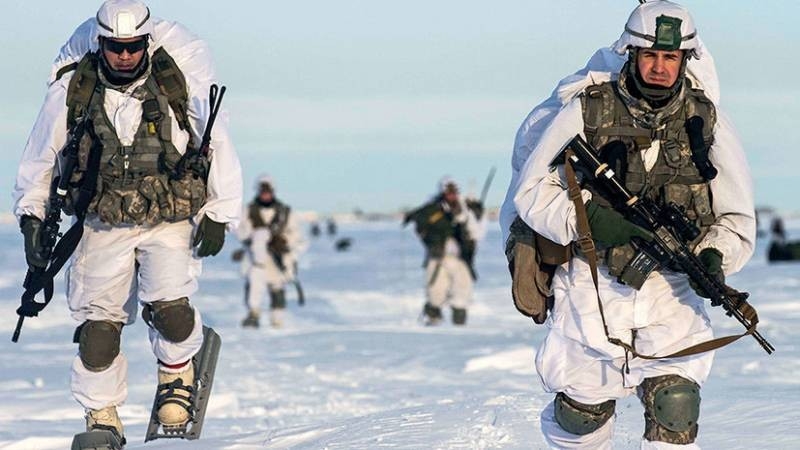

2:0 in favor of the dollar. Rejecting the "green", forget about the "wooden"
If we talk about the military-political aspects of the development of the Arctic, then the European states simply do not have real opportunities to confront Russia in the Arctic. Nor Britain, nor France, not to mention Norway or Denmark, do not have that military potential, which would allow them to be independent military players in the Arctic. Numerous military exercises, which are held by the countries - members of the North Atlantic Alliance, only demonstrate an inability to cope with those elementary tasks, which the Russian armed forces have long decided for themselves.
In Russia, unlike European states, there is a very large experience of military exercises and military construction in the Arctic. After all, almost the entire Arctic coast of Eurasia is controlled by our country., therefore, the Northern Sea Route cannot but pass through the territorial waters of the Russian Federation. Northern Fleet of the Russian Navy, Aerospace Forces, ground forces - all types of the Armed Forces of the Russian Federation annually hone their skills in the Arctic.
Against this background, the creation by France of a new Arctic helicopter, although it makes you a little wary, but nothing more. Russia has enough strength and capabilities to, to protect their interests in the Arctic. But there is one very big "but" - our country has the maximum advantages in the northern seas now, while the Arctic spaces are frozen and operate in the Northern Ocean without a powerful icebreaker fleet, which only Russia has, impossible. Does not have the proper level of combat training for operations in Arctic conditions and the personnel of most of the armies - members of the North Atlantic Alliance, and it's not just about ground forces, but also about the paratroopers, Marines, special forces, who, in the event of a conflict, will have to take on the main burden of hostilities in the Arctic latitudes.
As climate changes continue due to global warming, the situation may also change.. The ice has long been the defenders of the northern borders of Russia, but their melting can lead to, that icebreaker-free shipping will become possible in the Arctic seas. Furthermore, warships of foreign states will be able to freely operate in the Arctic seas. It is a distant perspective, warming, and carries increased risks for our country.
In this way, Russia should prepare for competition for the Arctic, which will be more and more violent and large-scale, including all new players: from France to Japan, from China to Canada.
Ilya Polonsky











